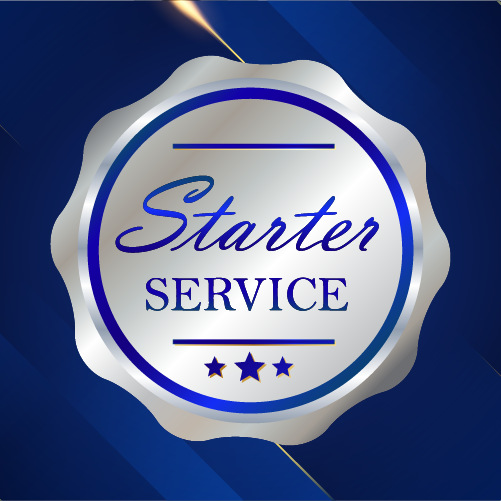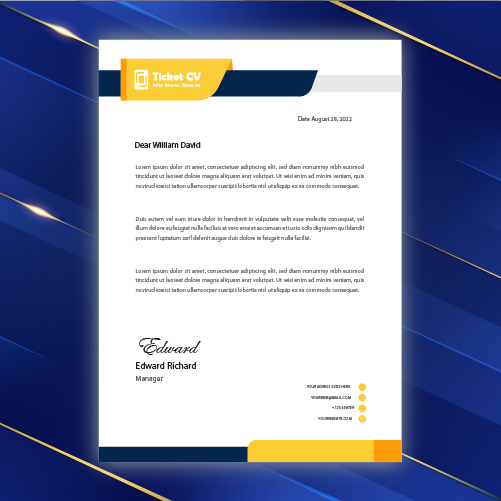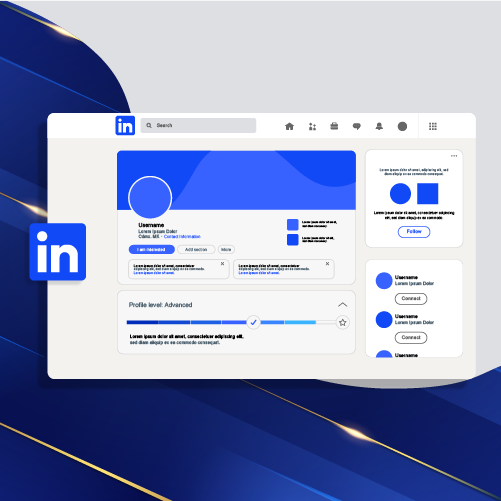Asking About Salary in Interview: Mastering Negotiation Tactics
- Researching the Company’s Salary Norms
- Recognizing the Appropriate Timing for Salary Discussions
- Understanding the Interviewer’s Perspective on Salary Talks
- Researching Salary Expectations Beforehand
- Utilizing Online Resources to Gauge Industry Standards
- Considering Location-Based Cost of Living Differences
- Factoring In Your Experience and Qualifications
- Timing Your Salary Discussion
- Waiting for the Right Moment
- Avoiding Premature Salary Discussions
- Being Mindful of Non-Verbal Cues
- Initiating the Salary Discussion with Tact
- Using a Confident and Respectful Approach
- Expressing Genuine Interest in the Role Before Discussing Salary
- Asking Open-Ended Questions to Encourage Dialogue
- Handling Salary Uncertainty from Interviewers
- Discussing Your Value and Worth
- Negotiating Salary Professionally
- Preparing Persuasive Arguments for a Higher Salary Offer
- Maintaining a Collaborative and Respectful Tone During Negotiations
- Being Open to Compromise While Advocating for Fair Compensation
- Addressing Benefits and Work-Life Balance
- Requesting a Formal Offer Letter Detailing All Agreed-Upon Terms
- Reviewing the Offer Thoroughly Before Accepting
- Is it appropriate to ask about salary during an interview?
- How can I negotiate my salary professionally?
- What should I do if interviewers are vague about salary?
- When should I discuss my salary expectations during an interview?
- Why is it important to get offer details in writing?
Discussing salary during job interviews can be a daunting task, but it’s crucial to gain insight into the company’s compensation culture. Approaching this topic requires careful consideration of industry standards, company terms, and your own experience. While some may feel uncomfortable broaching the subject, doing thorough homework on typical salary ranges for your position and industry can provide the confidence needed to address this often-taboo question.
Understanding how to navigate these discussions is essential. By researching the organization’s approach to compensation and asking relevant questions about the package offered, you demonstrate a keen interest in how your work will be valued. In this post, we’ll delve into setting the stage for salary discussions, providing examples of how to tactfully address this topic without saying the wrong words or coming across as overly focused on pay.

Contents
ToggleUnderstanding the Interview Landscape
Researching the Company’s Salary Norms
Before heading into an interview, it’s essential to research the typical salary range for the position within the company and industry. This information provides a benchmark for what to expect and helps in negotiating a fair compensation package. Websites such as Glassdoor, Payscale, or LinkedIn can offer valuable insights into average salaries for similar roles in specific companies.
Recognizing the Appropriate Timing for Salary Discussions
Timing is crucial when discussing salary during an interview. It’s generally advisable to wait until later stages of the interview process, preferably when both parties have a clear interest in moving forward. Bringing up compensation too early might give the impression that money is the primary motivation, potentially overshadowing other important aspects of your candidacy.
Understanding the Interviewer’s Perspective on Salary Talks
Interviewers often have a structured process for addressing salary-related matters. They may prefer to first evaluate your skills and qualifications before delving into discussions about compensation. Understanding this perspective can help you align with their expectations and demonstrate that you prioritize fit and contribution over monetary considerations.
Understanding how to handle discussions about salary can significantly impact your prospects. By thoroughly researching company norms, recognizing appropriate timing, and understanding the interviewer’s viewpoint on salary talks, you can navigate these discussions with confidence and professionalism.
Researching Salary Expectations Beforehand
Before heading into an interview, it’s crucial to research and understand salary expectations. This involves utilizing online resources, considering location-based cost of living differences, and factoring in your experience and qualifications.
Utilizing Online Resources to Gauge Industry Standards
Researching industry standards for salaries can provide valuable insights. Websites like Glassdoor, Payscale, or LinkedIn offer data on average salaries for specific job titles within different industries. These platforms also provide information on additional benefits such as bonuses, stock options, or healthcare packages that can contribute to overall compensation.
Considering Location-Based Cost of Living Differences
Understanding the cost of living in the area where the job is located is essential. A salary that may seem substantial in one city could be insufficient in another due to variations in housing costs, transportation expenses, and general living expenses. For instance, a software developer position in San Francisco would likely offer a higher salary than the same position in a smaller city due to the significant difference in living costs between these locations.
Factoring In Your Experience and Qualifications
Your unique qualifications and experience should also be taken into account when researching salary expectations. Individuals with advanced degrees or specialized skills typically command higher salaries than those with less experience or education. Certifications or relevant training can influence your market value within a specific industry or field.
By thoroughly investigating these factors before an interview, you’ll be better equipped to discuss salary expectations confidently during the hiring process.

Timing Your Salary Discussion
Timing is crucial. It’s important to wait for the right moment to bring up the topic and approach it tactfully.
Waiting for the Right Moment
Bringing up salary too early in the interview process can give the impression that money is your primary motivation. Instead, focus on showcasing your skills and qualifications before delving into compensation discussions. Waiting until later stages of the interview process demonstrates your interest in the role itself, rather than just the paycheck.
Avoiding Premature Salary Discussions
During initial interviews, prioritize building rapport with the interviewer and demonstrating your suitability for the position. Prematurely discussing salary may detract from these crucial aspects by shifting the focus away from your qualifications and potential contributions to the company.
Being Mindful of Non-Verbal Cues
When broaching the topic of salary, pay attention to non-verbal cues from the interviewer. Look for signs of receptiveness or discomfort when discussing compensation. Being mindful of their body language can guide you in navigating this sensitive conversation effectively.
Initiating the Salary Discussion with Tact
It’s crucial to approach the topic with confidence and respect, ensuring a positive and productive conversation. Expressing genuine interest in the role before delving into salary negotiations can set a constructive tone for the discussion. By asking open-ended questions, you can encourage dialogue and gain valuable insights into the employer’s expectations.
Using a Confident and Respectful Approach
Approaching the salary discussion with confidence involves being prepared to articulate your value while maintaining a respectful demeanor. It’s essential to convey your enthusiasm for the position and demonstrate how your skills align with the job requirements. By exuding confidence in your abilities, you convey that you are worth the compensation package you desire.
Expressing respect throughout this conversation is equally important. Acknowledge that salary discussions are part of the overall evaluation process and demonstrate understanding of the employer’s perspective. This approach fosters a collaborative atmosphere where both parties feel valued and heard.
Expressing Genuine Interest in the Role Before Discussing Salary
Before diving into salary specifics, express genuine interest in the responsibilities, challenges, and opportunities associated with the role. This demonstrates that your primary focus is on contributing meaningfully to the organization rather than solely on financial remuneration.
By displaying sincere curiosity about how you can contribute to the company’s success, you emphasize your commitment to adding value beyond monetary compensation. This approach also allows you to gather information about potential growth opportunities, which can influence your perception of long-term career prospects within the company.
Asking Open-Ended Questions to Encourage Dialogue
During salary discussions, asking open-ended questions can steer the conversation towards a more collaborative exchange of ideas rather than a one-sided negotiation. Encouraging dialogue allows both parties to express their viewpoints openly and constructively.
Open-ended questions such as “Can you tell me more about how performance evaluations are tied to compensation?” or “What opportunities for professional development does this role offer?” invite detailed responses that provide insight into how compensation is determined within the organization. This approach not only helps you understand their perspective but also showcases your interest in aligning personal goals with organizational objectives.
Handling Salary Uncertainty from Interviewers

Navigating Vague or Evasive Responses About Salary
When interviewers provide vague or evasive responses about salary, it can be challenging to gauge the potential compensation for a position. Instead of feeling discouraged, consider redirecting the conversation towards understanding the company’s approach to compensation.
Seeking Clarification on Compensation Packages and Benefits
It’s essential to seek clarification on compensation packages and benefits when faced with uncertainty during an interview. Politely inquire about the typical range for the role based on experience and qualifications. This approach demonstrates your interest in understanding how the company values its employees while also allowing you to make informed decisions about potential offers.
Remaining Composed if Interviewers Are Hesitant to Discuss Numbers
In situations where interviewers are hesitant to discuss specific numbers, it’s crucial to remain composed and adaptable. Approach the conversation with a mindset focused on learning more about the overall compensation structure, including bonuses, healthcare benefits, retirement plans, and other perks that contribute to the total package.
By maintaining a composed demeanor and expressing genuine interest in understanding the complete compensation offering, candidates can navigate through uncertain salary discussions effectively. Remember that flexibility in negotiating non-monetary benefits can also play a significant role in weighing various job offers.
Discussing Your Value and Worth
Articulating Your Unique Skills and Contributions
When discussing your value and worth in relation to salary during an interview, it’s crucial to articulate your unique skills and contributions. Instead of simply stating generic qualities, focus on what sets you apart from other candidates. Highlight specific skills or experiences that demonstrate your ability to excel in the role.
For instance, if you’re applying for a marketing position, rather than just mentioning your “strong communication skills,” provide examples of successful campaigns you’ve led or how you’ve effectively engaged with target audiences. This approach helps the interviewer visualize the direct impact you can have on their organization.
Providing Specific Examples of Past Achievements and Successes
To further solidify your value proposition, provide specific examples of past achievements and successes. Whether it’s exceeding sales targets, streamlining processes to improve efficiency, or receiving accolades for exceptional performance, concrete examples offer tangible evidence of your capabilities.
By sharing these accomplishments, you not only showcase your expertise but also convey your potential to deliver similar results within the new role. Employers appreciate candidates who can substantiate their claims with real-life instances of success.
Demonstrating How Your Expertise Aligns with the Company’s Needs
In addition to showcasing personal achievements, it’s essential to demonstrate how your expertise aligns with the company’s needs. Research the organization thoroughly beforehand to understand its goals, challenges, and values. Then, during the interview, draw parallels between your skills and what the company is seeking in an ideal candidate.
For example, if the company emphasizes innovation and creativity as part of its culture, highlight projects where you introduced inventive solutions or contributed to creative initiatives. By aligning your expertise with the company’s objectives, you portray yourself as someone who can seamlessly integrate into their team and drive meaningful impact.
Negotiating Salary Professionally
Preparing Persuasive Arguments for a Higher Salary Offer
When preparing persuasive arguments for a higher salary offer, it’s crucial to research the industry standards and the specific salary range for the position. Highlighting relevant skills, experience, and accomplishments can strengthen your negotiation stance. For instance, you could mention any additional qualifications or certifications that contribute to your value as a professional.
Maintaining a Collaborative and Respectful Tone During Negotiations
Maintaining a collaborative and respectful tone during negotiations is essential for fostering a positive relationship with the hiring manager. Expressing gratitude for the job offer while discussing salary conveys professionalism and appreciation. It’s also important to listen actively during negotiations, acknowledging the perspectives of the hiring manager regarding the compensation package.
Being Open to Compromise While Advocating for Fair Compensation
Being open to compromise while advocating for fair compensation demonstrates flexibility and reasonableness. Understanding the employer’s budget constraints and other components of the compensation package can facilitate constructive discussions. For example, if the company cannot meet your desired salary, you might negotiate other benefits such as additional vacation days or professional development opportunities.
Negotiating salary is not solely about securing the highest pay possible; it’s about finding common ground where both parties feel satisfied with the outcome. By approaching negotiations with professionalism and respect, professionals can navigate this process effectively while maintaining positive relationships with prospective employers.
Addressing Benefits and Work-Life Balance

Inquiring about additional perks beyond base salary can provide a more comprehensive understanding of the total compensation package. This includes health insurance, retirement plans, bonuses, stock options, paid time off, and professional development opportunities.
Additional Perks
- Health Insurance: Inquiring about the extent of health coverage, including dental and vision benefits, demonstrates a candidate’s concern for their well-being. It also indicates an understanding of the importance of healthcare in maintaining overall work-life balance.
- Retirement Plans: Candidates should inquire about employer contributions to retirement savings plans or 401(k) matching programs. Understanding these benefits showcases a long-term commitment to financial stability and security.
By asking about these additional perks during the interview process, candidates convey their interest in holistic well-being beyond just the monetary aspect.
Emphasis on Work-Life Balance
- Flexible Work Arrangements: Candidates can express interest in flexible work hours or remote work options. This not only shows consideration for personal responsibilities but also highlights adaptability and efficiency in managing work tasks.
- Paid Time Off: Inquiring about vacation days, sick leave policies, and company holidays underscores the significance of rejuvenation and relaxation outside of work commitments.
In today’s workplace culture, emphasizing work-life balance is crucial for sustaining employee satisfaction and productivity. Employers are increasingly recognizing that a balanced life leads to happier employees who are more engaged at work.
When candidates ask questions related to benefits and work-life balance during interviews, they demonstrate their proactive approach towards creating a harmonious relationship between their professional and personal lives. This proactive stance can be seen as an asset by potential employers who value employees’ overall well-being.
Getting Offer Details in Writing
Requesting a Formal Offer Letter Detailing All Agreed-Upon Terms
It’s crucial to request a formal offer letter from the employer. This letter should outline all the terms and conditions discussed during the interview process, including salary, benefits, start date, and any other pertinent details.
It’s essential to ensure that the offer letter includes specifics about the position being offered, such as job title, department, reporting structure, and any contingencies related to employment (e.g., passing a background check or drug screening).
Reviewing the Offer Thoroughly Before Accepting
Before hastily accepting an offer, take the time to thoroughly review all aspects of the offer letter. Scrutinize the details relating to compensation, including base salary, bonuses or commissions, stock options if applicable, and any potential raises or performance-based incentives.
Carefully assess information about benefits such as healthcare coverage, retirement plans, paid time off policies, and other perks that may be included in the package. It’s important to understand how these benefits align with your personal needs and expectations.
In addition to compensation and benefits details within the offer letter,
- Pay attention to clauses related to non-compete agreements or intellectual property rights.
- Ensure that there is clarity on working hours and remote work arrangements if they were part of prior discussions.
- Verify that any promises made during negotiations are accurately reflected in the written offer.
By requesting a formal offer letter detailing all agreed-upon terms and thoroughly reviewing its contents before acceptance,
- Candidates can protect themselves from misunderstandings or discrepancies down the line.
- This approach also demonstrates professionalism and attention to detail to potential employers.
Remember that an offer letter serves as a safeguard for both parties involved in an employment agreement; it provides legal protection for employees while offering clarity for employers regarding their obligations. Therefore,
- Seeking this formal documentation not only protects your interests but also sets clear expectations for your future role within the organization.
Ensuring that every aspect of your potential employment is clearly outlined in writing can prevent possible disputes or uncertainties after you’ve started your new job. Always remember: clear communication at this stage sets a solid foundation for a successful professional relationship.
Conclusion
You’ve now gained valuable insights into navigating the delicate topic of discussing salary during an interview. Armed with the knowledge of researching salary expectations, timing your discussion strategically, and negotiating professionally, you’re better equipped to handle this crucial aspect of the interview process. Remember, your worth goes beyond just the numbers; it encompasses your skills, experience, and the value you bring to the table. Approach the salary discussion with confidence, knowing that you’ve done your homework and are prepared to articulate your worth effectively.
Now, go out there and ace that interview with the newfound confidence in handling the salary discussion like a pro!
Frequently Asked Questions
Is it appropriate to ask about salary during an interview?
It’s best to wait for the right moment. Research the typical salary range for your role beforehand so you’re prepared. When the timing is right, tactfully broach the subject to ensure it aligns with your expectations.
How can I negotiate my salary professionally?
Approach negotiations as a collaborative discussion rather than a confrontation. Emphasize your value and contributions while remaining open-minded. Keep in mind that it’s not just about the money; consider other benefits and work-life balance too.
What should I do if interviewers are vague about salary?
If interviewers are evasive, try redirecting the conversation by expressing your interest in understanding how they typically structure compensation packages. This approach can help you gain insight without directly pressuring them for specific numbers.
When should I discuss my salary expectations during an interview?
Timing is crucial. It’s generally better to postpone detailed discussions until you’ve established your fit for the role and company culture. Once mutual interest has been confirmed, it’s more appropriate to delve into specifics.
Why is it important to get offer details in writing?
Verbal promises can be easily forgotten or misinterpreted. Having everything in writing ensures clarity and provides a reference point if any discrepancies arise later on.











